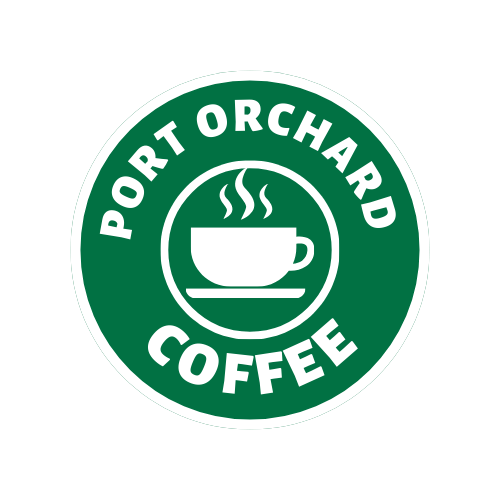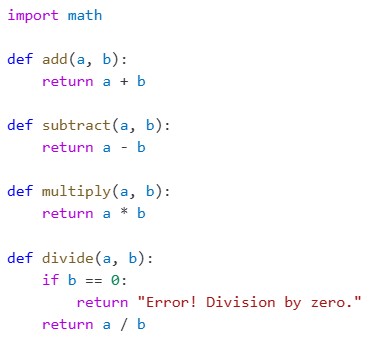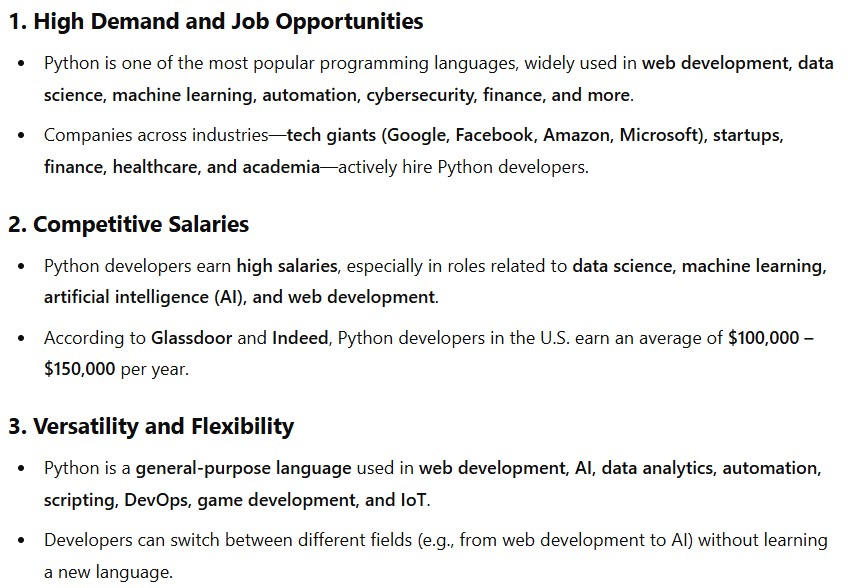
Port Orchard Coffee
Coffee is our name. Coding is our passion.

Coffee is our name. Coding is our passion.

Port Orchard Coffee blends a love for coffee with a passion for coding. Our mission is to caffeinate your potential and empower you to learn Python programming.

Python is a versatile and powerful programming language that is easy to learn and use. It has a simple syntax that makes it accessible to beginners, yet it is powerful enough to handle complex tasks. Python is widely used in various fields such as web development, data analysis, artificial intelligence, scientific computing, and more. Its extensive libraries and frameworks make it a go-to choice for developers.

Pursuing a career in Python programming can open up numerous opportunities in various industries. Python developers are in high demand due to the language's popularity and versatility. Careers in Python can range from web development and data science to artificial intelligence and machine learning. Python developers often enjoy competitive salaries, job security, and the ability to work on cutting-edge technologies.
Date: December 1, 2024
Welcome to Python programming! In this tutorial, you’ll learn how to set up Python on your computer, write your first Python script, and understand the basics of how Python works. By the end, you’ll have a solid foundation to explore the rest of these tutorials.
# Your First Python Program
print("Welcome to Python!")
Key Topics: Installing Python, running Python scripts, using the Python interpreter.
Date: December 5, 2024
In this tutorial, we’ll cover variables and the different data types in Python. Learn how to store and manipulate data using numbers, strings, and booleans.
# Variables and Data Types
name = "Alice"
age = 25
is_student = True
print(f"My name is {name}, I'm {age} years old, and student status: {is_student}")
Key Topics: Variables, data types, and string formatting.
Date: December 9, 2024
Learn how to control the flow of your program with conditional statements and loops. This tutorial introduces you to the power of decision-making and iteration in Python.
# If Statements and Loops
number = 5
if number > 0:
print("Positive number")
for i in range(3):
print(f"Loop iteration {i}")
Key Topics: If-else statements, for loops, while loops, and range().
Date: December 13, 2024
Functions help you write reusable and modular code. This tutorial will teach you how to define and use functions in Python.
# Functions in Python
def greet(name):
return f"Hello, {name}!"
print(greet("Alice"))
Key Topics: Function definition, arguments, return values.
Date: December 17, 2024
Learn how to work with Python’s versatile data structures: lists and dictionaries. These are essential for storing and organizing data in Python.
# Lists and Dictionaries
fruits = ["apple", "banana", "cherry"]
prices = {"apple": 0.5, "banana": 0.3, "cherry": 0.2}
print(fruits[0]) # Access list
print(prices["banana"]) # Access dictionary
Key Topics: Lists, dictionaries, indexing, and basic operations.
Date: December 21, 2024
This tutorial covers how to read from and write to files in Python, enabling you to handle data persistence in your programs.
# Reading and Writing Files
with open("example.txt", "w") as file:
file.write("Hello, File!")
with open("example.txt", "r") as file:
print(file.read())
Key Topics: File I/O, context managers, read/write modes.
Date: December 25, 2024
Dive into the world of object-oriented programming with Python. Learn how to define classes, create objects, and use methods.
# Classes in Python
class Animal:
def __init__(self, name):
self.name = name
def speak(self):
return f"{self.name} makes a sound."
dog = Animal("Dog")
print(dog.speak())
Key Topics: Classes, objects, constructors, and methods.
Date: December 31, 2024
Errors can crash programs, but Python offers a way to handle them gracefully. This tutorial teaches you how to manage exceptions using try-except blocks.
# Try-Except Blocks
try:
result = 10 / 0
except ZeroDivisionError:
print("Cannot divide by zero.")
Key Topics: Try-except blocks, error handling, exception types.
Date: January 1, 2025
Explore Python’s powerful libraries for data analysis. Learn the basics of NumPy and Pandas to handle data efficiently.
# NumPy and Pandas Basics
import numpy as np
import pandas as pdf
array = np.array([1, 2, 3])
data = pd.DataFrame({"Name": ["Alice", "Bob"], "Age": [25, 30]})
print(array)
print(data)
Key Topics: NumPy arrays, Pandas DataFrames, basic operations.
Date: January 5, 2025
Apply everything you’ve learned by building a simple project: a to-do list program. This tutorial guides you through the process of creating and testing your own Python application.
# To-Do List Project
tasks = []
def add_task(task):
tasks.append(task)
def view_tasks():
for i, task in enumerate(tasks):
print(f"{i + 1}. {task}")
add_task("Learn Python")
add_task("Build a project")
view_tasks()
Key Topics: Putting it all together: lists, functions, and user interaction.